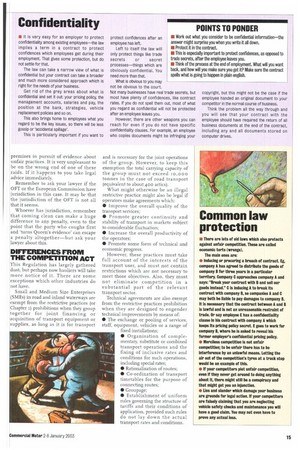Common law protection
Page 15

If you've noticed an error in this article please click here to report it so we can fix it.
• There are lots of old laws which also protects against unfair competition. These are called economic torts (wrongs). The main ones are:
• inducing or procuring a breach of contract. Eg, company A has agreed to distribute the goods of company B for three years in a particular territory. Company C approaches company A and says: "Break your contract with B and sell our goods Instead." C is inducing A to break its contract with company B, so companies A and C may both be liable to pay damages to company B. It is necessary that the contract between A and B Is lawful and is not an unreasonable restraint of trade. Or say employee E has a confidentiality clause in his contract with company A which keeps Its pricing policy secret. E goes to work for company B, where he is asked to reveal his former employer's confidential pricing policy.
• Merciless competition is not unfair competition; to be unfair there has to be Interference by an unlawful means. Letting the air out of the competition's tyres at a truck stop would be an example of this.
• if your competitors plot unfair competition, even if they never get around to doing anything about it, there might still be a conspiracy and that might get you an injunction.
• Lies and slander which damage your business are grounds for legal action. If your competitors are falsely claiming that you are neglecting vehicle safety checks and maintenance you will have a good claim. You may not even have to prove any actual loss.
































































































































